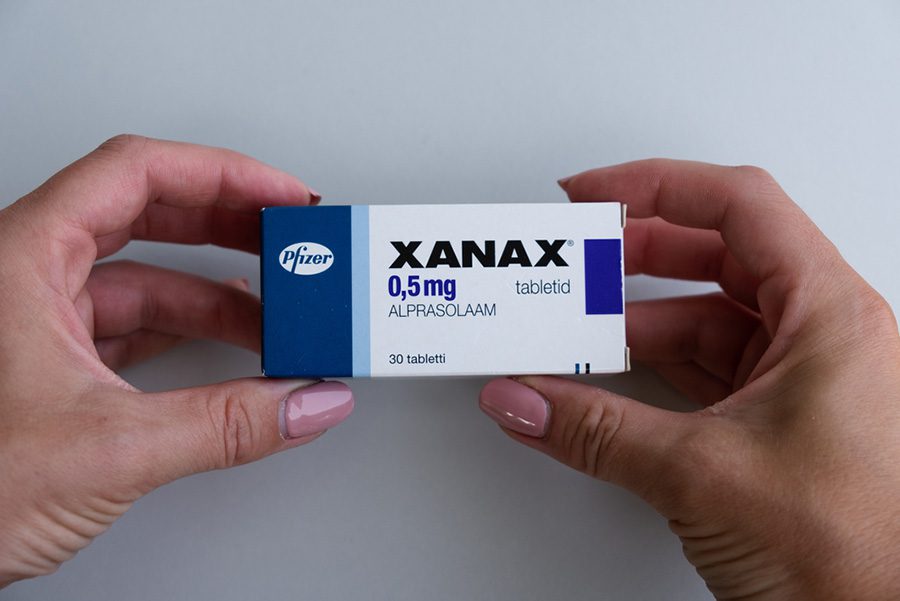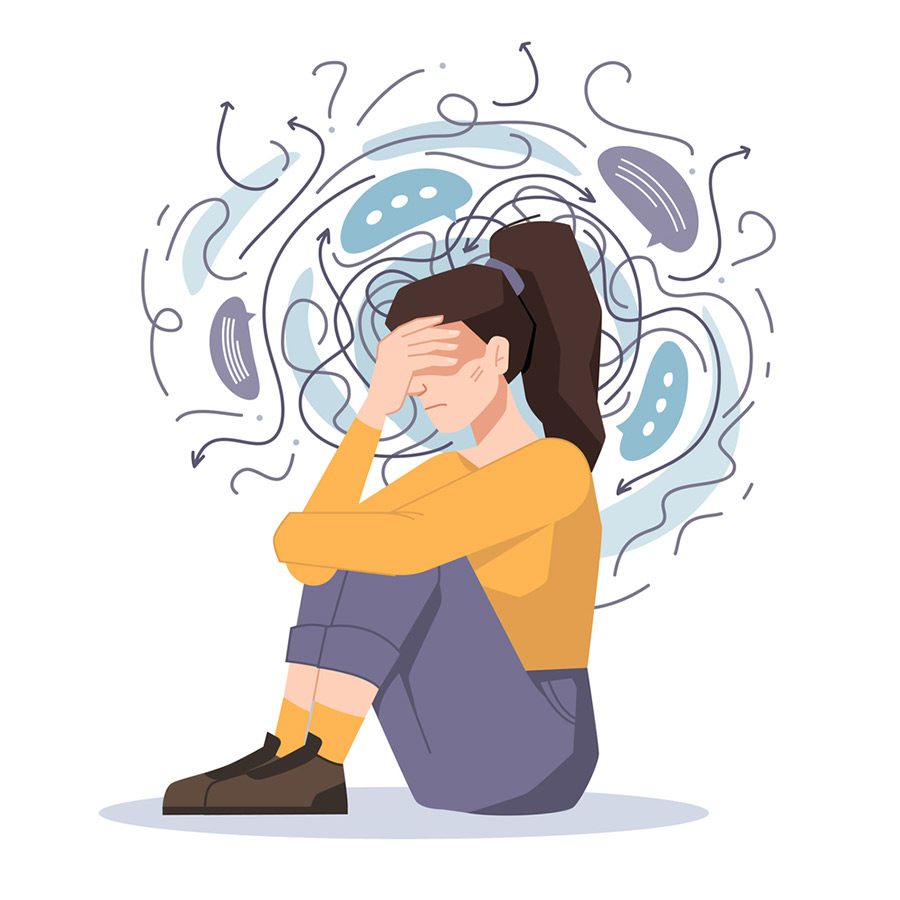
What Does Xanax Do To The Brain
The amount of people who are prescribed Xanax is higher than the number of people who are prescribed any other medication that primarily affects mental health. In fact, Xanax is the third most prescribed medication period in the United States, with over 50 million people taking Xanax on a regular basis.
However, though the drug can be beneficial for certain conditions, the effects of Xanax are not all positive ones. Xanax addiction can develop quickly even in people who are only taking Xanax as prescribed, which can lead to devastating mental health issues as well as physical health issues and even brain damage.
While Xanax affects the brain in ways that make it an appropriate temporary treatment for epilepsy and other seizure disorders, when considering Xanax for a mental health disorder, it’s worth considering whether the risk associated with the long term effects of taking Xanax for an extended period is truly worth the short term relief.
Risk Of Using Xanax For Panic Disorders
Benzodiazepine medications like Xanax are most often prescribed to treat anxiety and panic disorders, though they can also be used to treat seizure disorders or as a short term treatment for the manic phase of a condition like bipolar disorder.
Xanax, compared to other benzodiazepines, is more potent and has an unusually short half life. This means that the short term effects of Xanax use kick in quickly, but also increases the risk of Xanax abuse, since the person may crave more as soon as their initial dose wears off, as opposed to similar prescription medications with a longer half life.
Like other benzodiazepines, Xanax acts on the brain chemical gamma aminobutyric acid, also known as GABA, which is an excitatory brain chemical. Xanax attaches to GABA receptors right away, offering immediate relief from temporary anxiety through its calming effects on the parts of the central nervous system that produce GABA.

However, tolerance to the effects of Xanax use can develop in less than a month, as brain activity adapts to these effects of Xanax, which is why it is recommended that the drug not be prescribed for periods any longer than six weeks, though many medical practitioners have been known to dubiously prescribe it for far longer.
This in turn leads to Xanax abuse as the person needs to take more and more of the drug to experience the same relief from anxiety and panic attacks that they did initially, as well as to Xanax addiction as the brain cells become accustomed to the effects of Xanax and become unable to function normally without it. Many people who take benzodiazepines also become dependent on them to sleep, creating a dangerous cycle of abusing Xanax just to stave off insomnia.
Risks Of Xanax Addiction
Unfortunately, taking too much Xanax is no joke. Though abusing Xanax may offer short term relief from negative emotions, long term effects of Xanax use can include difficulty concentrating, disturbed mood, depression, unusual violent behavior, and problems with memory.
These cognitive effects of Xanax use may be evident even after the individual stops taking the drug, and may cause such severe symptoms as to result in an increased risk of full blown dementia. According to a recent study cited by Harvard health, individuals who had taken benzodiazepines for a period of three to six months were at a thirty two percent higher chance of developing Alzheimer’s disease.
Even more frightening, those who had been on benzodiazepines for periods longer than six months had an eighty four percent higher risk of developing Alzheimer’s disease. Additionally, while overdose on Xanax alone is relatively rare, drug users who combine Xanax with other depressants, such as opiates or alcohol, may induce a fatal respiratory depression.
Because of the way that drugs like Xanax affect the brain, Xanax users are also more likely to experience withdrawal symptoms than users of many other prescription drugs. While psychological dependence on Xanax can lead to intense anxiety when someone who is addicted to Xanax reduces their drug abuse, the significant long term effects of Xanax on brain chemistry mean that Xanax withdrawal comes with physical risks as well.
Xanax Withdrawal Symptoms
Another factor that makes Xanax addiction so dangerous is the severity of Xanax withdrawal symptoms. Along with causing serious psychological symptoms like depression, insomnia, suicidal ideation, and panic attacks and serious physical symptoms like high blood pressure, Xanax withdrawal can even induce seizures, which may be life threatening or come with the risk of damaging the brain long term, especially in the case of repeated seizures.

Thus, medical detox from Xanax should only take place under medical supervision in order to avoid these negative effects. Careful monitoring by a healthcare provider and proper treatment in the case of a medical emergency like convulsive seizures can spare someone a devastating brain related consequence or even save their life.
Addiction Treatment Options At Reco Intensive
As dangerous and difficult as Xanax addiction is, it’s important to remember that recovery is still always possible. At Reco Intensive, we specialize in treating all forms of substance abuse, including benzodiazepine addiction.
In our intensive outpatient addiction treatment program, scientifically backed treatment modalities like cognitive behavioral therapy and dialectical behavioral therapy are paired with activities and programming focused on holistic wellness, helping us to heal the whole person.
By encouraging fellowship amongst our patients with our twelve step inspired group programming, we also help them to build lasting connections with each other and with the sober community, including through our active alumni program. Our mission of treating every client with the utmost respect, empathy, and compassion is sure to help you or your loved one get back on the road to a sober life and a brighter future.
We are accredited as a member of the Substance Abuse and Mental Health Services Administration as well as by reputable organizations like the Better Business Bureau, the Joint Commission International, and the Florida Alcohol and Drug Abuse Association. To learn more and to speak to a qualified admissions representative about whether Reco Intensive might be right for you, feel free to call us anytime at 844-955-3042 or to contact us online anytime here.